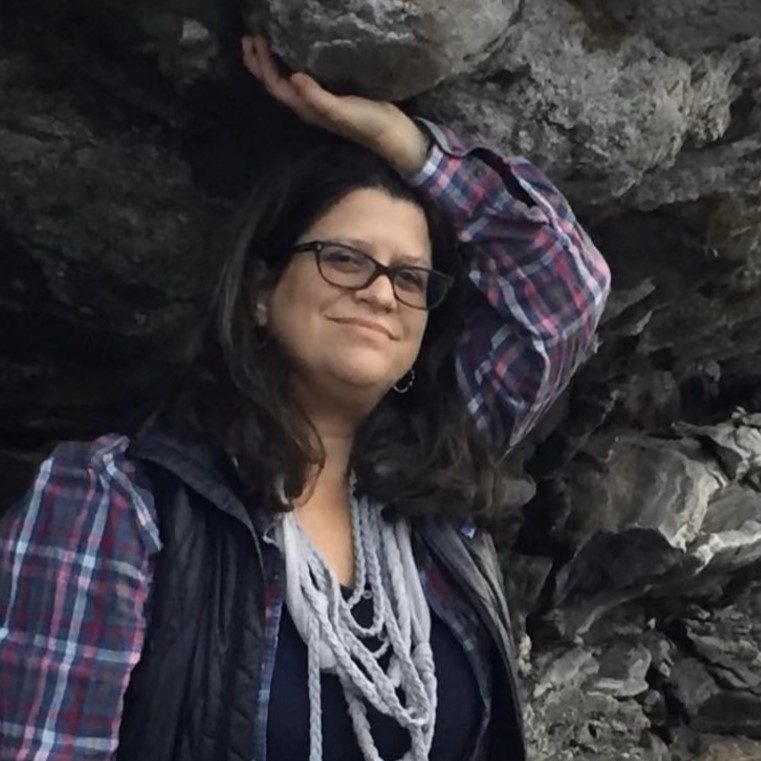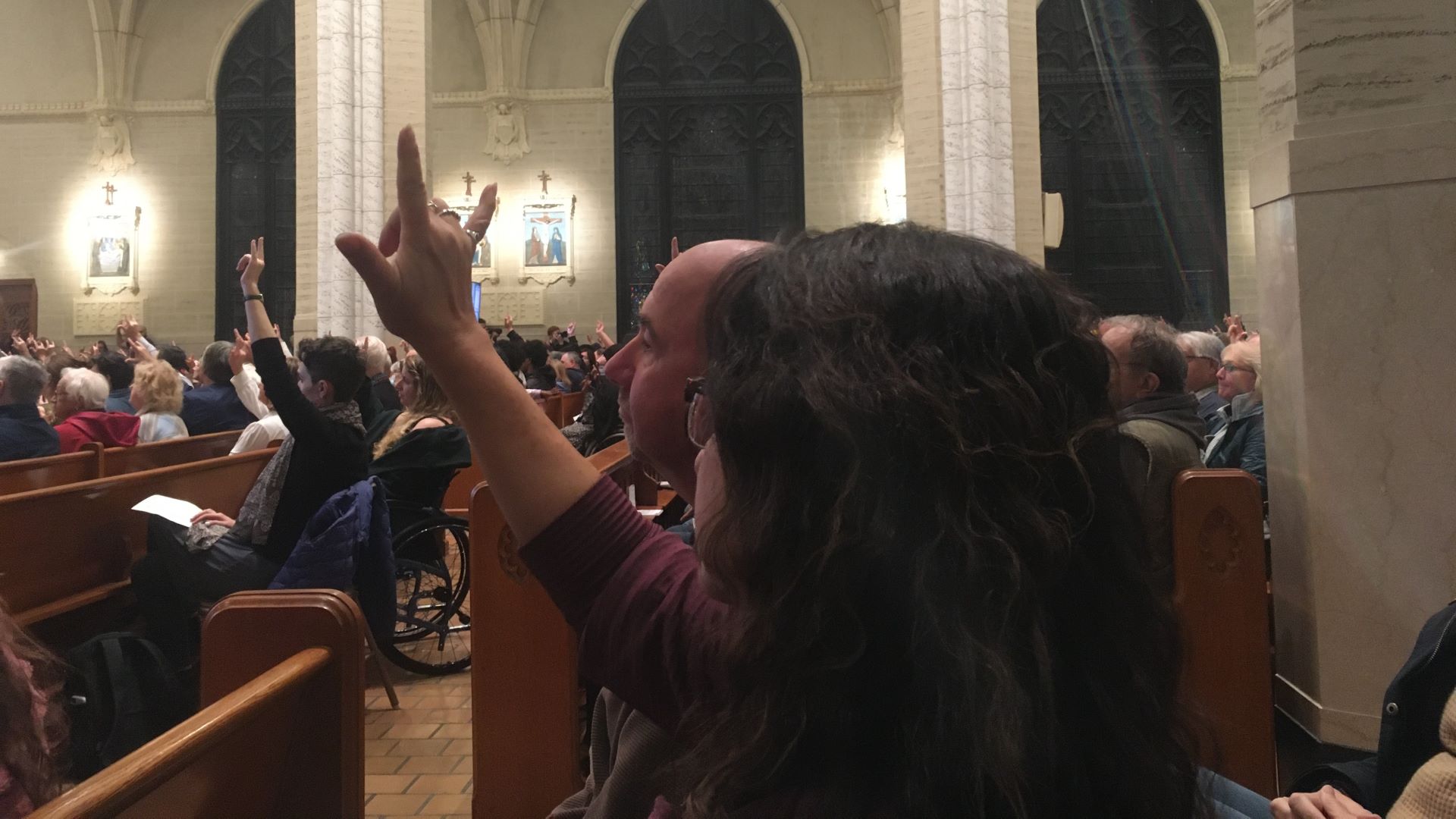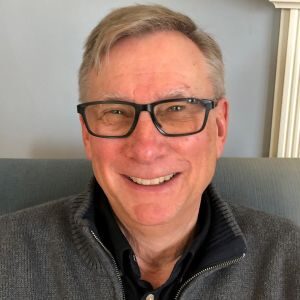The Deaf community in Maine has been reeling since the Lewiston mass shootings. Four deaf people were among the 18 killed: Joshua Seal, 36; Billy Brackett, 48; Steve Vozzella, 45; and Bryan MacFarlane, 41. They had gathered with a group that night at Schemengees Bar and Grille in Lewiston for a cornhole game.
To better understand the impact of the losses on Deaf people in the state, The Maine Monitor interviewed Roxanne Baker, a community leader who is an alumni of the Governor Baxter School for the Deaf in Falmouth and currently on the school’s board. Baker spoke through an American Sign Language interpreter and via email, and she reviewed the edited transcript for accuracy.
Maine Monitor: How would you describe your emotions and reactions to the shooting, and those of your fellow members of the Deaf community?
Roxanne Baker: “Shattered, I would say. Heartbroken to have this senseless tragedy happen to our community. We live in such a small, close-knit community where everybody knows each other and also are good friends. When it’s people that you know, it’s just a very raw feeling. I’m still experiencing grief, having a hard time sleeping, and feeling the world is crumbling.”
MM: How are you placing this shooting in the context of the epidemic of mass shootings across the U.S.?
RB: “When I learned that this was the 10th-most deadly shooting in the U.S. and the worst mass shooting in the history that included deaf people, it’s just shocking and devastating to see the highest number of victims, injuries and survivors happening here in Maine.”

“I definitely think it was preventable,” Baker said, noting the many missed warning signs of gunman Robert Card’s mental health problems.
“They need to have increased mental health services and public safety. There’s a gap there, where he felt through the cracks.”
Baker’s strongest opinions involved assault weapons, like the one Card used.
“It angers me. I’m definitely disgusted with what is going on with the gun violence situation. That’s all just politics. I’m just really trying to understand why these weapons are allowed in the first place. Why?
“Something is wrong with the picture. The assault guns should be banned in the U.S. Assault rifles are something you need for war, for military training, but not to kill the innocent civilians, robbing their lives.”
MM: Describe the Deaf community in Maine.
As a school board member and leader in the Deaf community, Baker said she knew the group that gathered at the bar for the cornhole tournament.
She said many of them attended the Governor Baxter School for the Deaf, now called Maine Educational Center for the Deaf and Hard of Hearing/Governor Baxter School for the Deaf (MECDHH/GBSD). Two of the men (Seal and Brackett) who were killed have kids in the school. The others also have connections to the larger Maine Deaf community.
“They also gather socially for sports, recreation activities and games, Deaf Culture Festival, Deaf Film Festival, Deaf night out and other events,” she said.
“Losing four members of our Deaf community is the hardest hit, and creates a void for us in our small close-knit community. We all have been getting a lot of support and a lot of love from all over the state and country.”
MM: Please tell us more about the victims of the shooting who were members of the Deaf community.
Baker offered these snapshots:
Seal, a proud, devoted husband, and father of four beautiful Deaf children, was involved in the school and community as a charismatic leader and positive role model. He was a director of Pine Tree Society Interpreting agency and was also a certified Deaf Interpreter. Seal established Camp Dirigo, a camping program for Deaf and Hard of Hearing youth that’s run for the past two summers at Pine Tree Camp. Seal planned to organize a national Deaf disc golf tournament in 2025.
“The Seal family are an integral part of the Deaf community who have watched each of their four Deaf children grow up since they were a baby. Being good friends with them has given me a close-up view of this incredible family,” Baker said.
MacFarlane, an alumni of GBSD, did landscaping work, including at Baker’s property, before moving out of state. He was also a licensed commercial truck driver who just moved back to Maine a few months ago with a dog named M&M. He has a Deaf sister, Keri, who also attended GBSD.
Brackett, an alumni of GBSD, enjoyed sports and was a natural athlete growing up. His dad used to be a maintenance worker at the school. Also a beloved husband and father of a young daughter now attending MECDHH/GBSD. He worked for FedEx Ground.
Vozzella, originally from Massachusetts, moved to Maine with his wife Megan, an alumni of GBSD. They have a daughter together. Steve was a beloved husband, father of two children and member of Maine’s Deaf community. He worked for the U.S. Postal Service for more than 20 years.
“The Deaf community is like one big family,” Baker said. “We are interwoven. It’s like a tapestry.”
MM: How did the shootings impact the profile of the community in Maine?
Baker said mental health providers and counselors from out of state have reached out. “We do have a good number of therapists and sign language interpreters offering services for support,” she said.
Baker noted that at the press conferences during the manhunt, an American Sign Language interpreter was fully included in the television screens, providing equal access to the deaf people watching.
“We weren’t minimized and put in a little box on the screen,” she said.
She also noted that Kevin Bohlin, a leader in Maine’s Deaf community, was included among the speakers at the “One Lewiston” vigil at the Basilica of Saints Peter and Paul on Sunday night.
At the end of his speech, many in the audience inside and outside the packed church raised their hands with the sign for “I love you” (ILY), honoring the victims of the shootings.
“That meant a lot. That meant a lot to the Deaf community. That made a huge impact. It felt like we were in this together.”
She said Gov. Janet Mills made an effort to sign “sorry” and “I love you” when she encountered members of the Deaf community at the Basilica. “That was touching,” Baker said.







